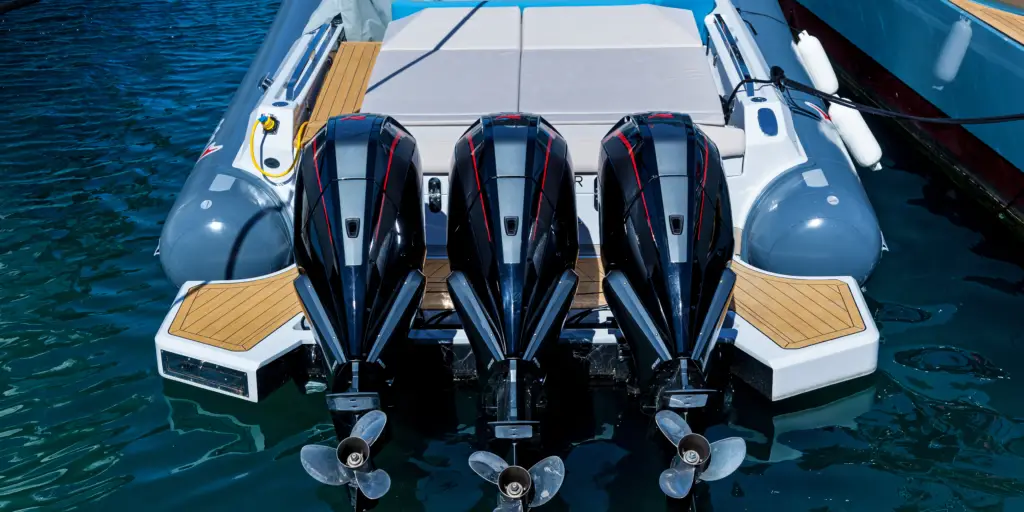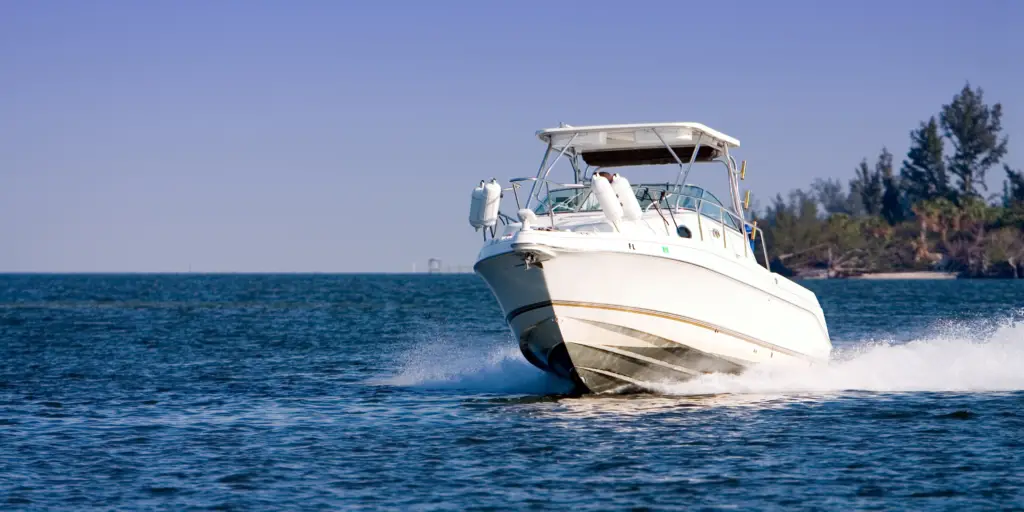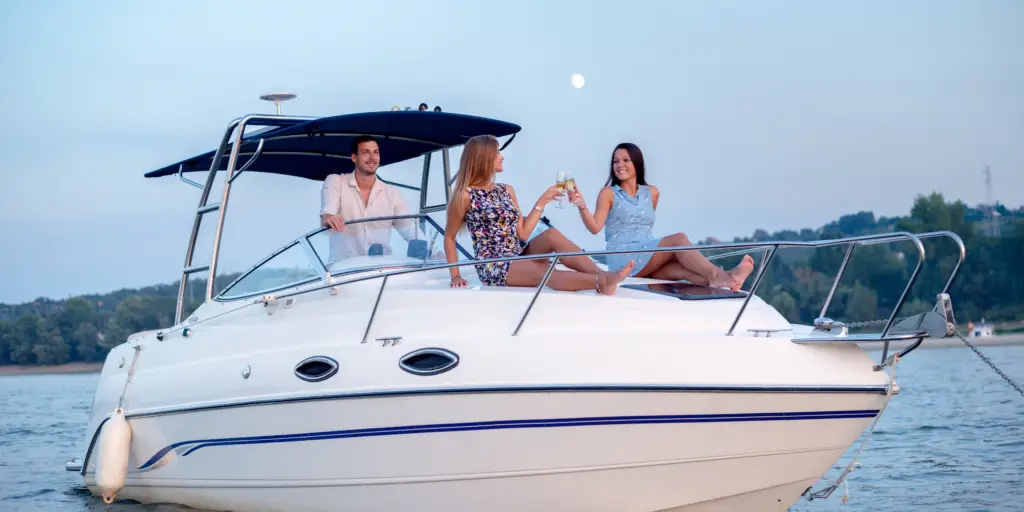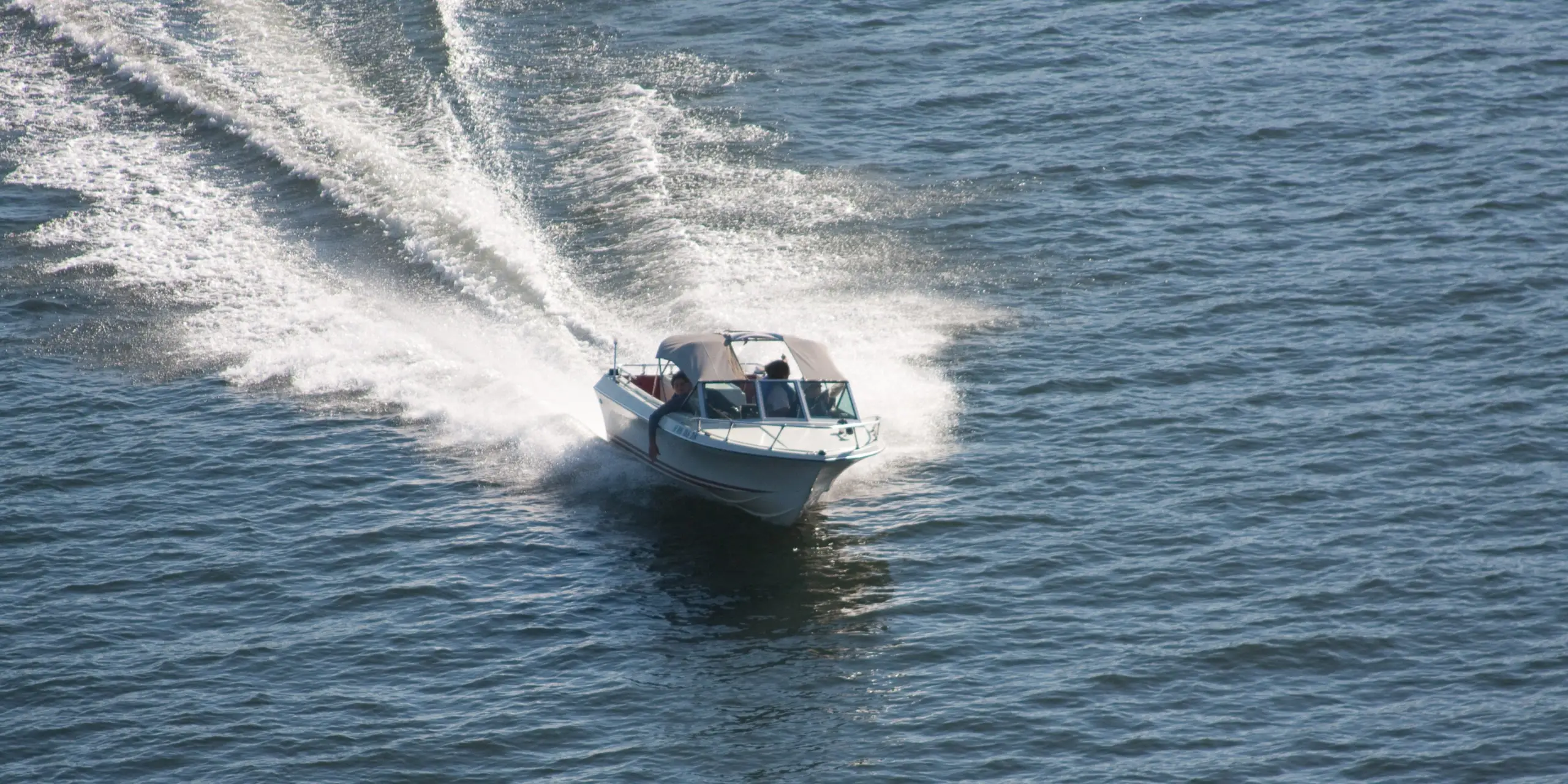So, you’re ready to dip your toes into boating, or maybe you already own a boat and are thinking of upgrading your boat’s horsepower.
There are a lot of different horsepower options available today, so it can be daunting to figure out how to make the right choice. In order to find the right horsepower that’s safe, efficient, and accomplishes your goals with your vessel, there are a handful of considerations you should keep in mind.
Let’s go over how to figure out how much horsepower you need for your boat. We’ll examine general guidelines, safety concerns, and how to decide based on your boat type and use. Lastly, we’ll go over cost considerations, as it’s something that’s usually on people’s minds when it comes to boats.
The “Rule of Thumb” for Boat Horsepower
Just to lay some groundwork, let’s briefly define horsepower. Horsepower is a common unit of power used for engines and motors. One horsepower is known to equal 33,000 foot-pounds of work per minute, or the electrical equivalent of 746 watts.
You don’t necessarily need to know all that, but it helps to understand the concept. Nearly all petroleum-powered (gasoline, diesel, etc.) boat engines, both inboard and outboard, are measured by horsepower.
The widely accepted rule of thumb for determining how much horsepower a boat needs is that you’ll need one horsepower for every 25-40 pounds of weight. The lower the ratio, meaning the more horsepower you have per pound, the faster the boat will go.
With that being said, this is a simplified equation. There are a variety of other factors you should consider, which we’ll explain in more detail next.

Is It Possible to Have Too Much Horsepower for a Boat?
Yes, it’s entirely possible to have too much horsepower for a boat. A boat with too high of horsepower can be too heavy and/or too fast, which ultimately results in a serious safety hazard.
It can also be illegal to overpower a boat with too much horsepower. At least in the United States, there are limits set by federal law regarding how much horsepower you can have based on the size and weight of your boat.
There also may be state and local regulations for how much horsepower you can have, so make sure to do your research for restrictions based on where you plan to go boating.
Is It Possible to Have Too Little Horsepower for a Boat?
While there’s no law that prevents anyone from having too little horsepower, there is such a thing as not having enough depending on the boat.
Not having enough horsepower for your boat will make getting around take longer, will use up fuel quicker, and in general, won’t allow you to achieve your boat’s full potential.
As with many things in life, a delicate balance will achieve the best results.

Manufacturer Limits/Guidelines
The first place you should start when trying to decide how much horsepower you need is your boat manufacturer’s guidelines or limits, specific to your exact boat model.
Every boat will have a horsepower limit listed in the owner’s manual and sometimes listed on a sticker on the boat itself. Boat makers take their designs through extensive performance and safety testing, so the horsepower limit they provide is well-informed. It’s highly advised that you never exceed your boat’s horsepower limit set by the manufacturer.
Exceeding a boat’s horsepower limit will cause performance issues, put additional strain on the boat itself, and cause safety issues. Going over the horsepower limit can also void warranties and increase your liability in the event of an accident.
Boat Weight
The weight of your boat is also a big factor in determining how much horsepower you’ll need. The heavier the boat, the more horsepower will be required to run it efficiently, and as we discussed earlier, you should aim for one horsepower for every 25-40 pounds.
When calculating the weight of your boat, make sure to take into account how much your boat weighs with a full tank of gas, gear, and the number of people you typically have on board. This will help inform a more real-world number for the amount of horsepower you’ll need.
The number of passengers is a big contributor to a boat’s loaded weight. Are you more of a solo boater? Well, you may be able to get away with a little less horsepower. Do you often take multiple people with you on your boating trips? A little extra horsepower may be worthwhile to help your boat operate more efficiently.

Boat Use
How you intend to use your boat and your goals for your boating trips can help you figure out how much horsepower you need as well. Higher horsepower engines will help you get around quicker and may be necessary for certain water sports.
Some boating uses where high horsepower is advantageous include:
- Watersports such as water skiing, wakeboarding, tubing, wake surfing, etc.
- Competitive fishing tournaments
- Racing
- Long distance boating
On the other hand, your boat may simply not need a lot of horsepower to do what you want to do, such as pleasure boating or cruising. If you enjoy the simple pleasure of taking your boat out with friends and family to enjoy the sun and water, you can get by just fine with less horsepower.
Budget Considerations
Finally, one more thing you should not overlook when choosing how much horsepower you need for your boat is your budget.
With all of the many expenses associated with boats, the engine and engine maintenance are often the biggest expense. It’s nearly always the case that the more horsepower an engine is, the more it costs. If you’re trying to budget a boat build or upgrade, one of the simplest ways to cut costs is by opting for less horsepower.
Not only do high horsepower engines cost more and use up more fuel, but your boat insurance rates may increase, as well as your coverage limited. High horsepower is associated with higher liability, so it may be difficult to get affordable and comprehensive boat insurance with more horsepower.
In Summary
There are many factors that go into choosing the right amount of horsepower for your boat. Hopefully, these guidelines are helpful and take a lot of the guesswork out of the process.
Make sure to have the appropriate horsepower for the size and weight of your boat, and never exceed the horsepower limit set by the manufacturer. Aside from that, you’ll just need to decide how much power you may need or not need for the activities you enjoy on the water.
Above all, be safe and have fun on your next boating adventure!
- What Size Trolling Motor is Needed for a Pontoon Boat? - April 28, 2023
- The Best Kayak Seat Cushions to Help You Stay on the Water Longer - April 13, 2023
- The Best Pontoon Boat Rod Holders - April 12, 2023

